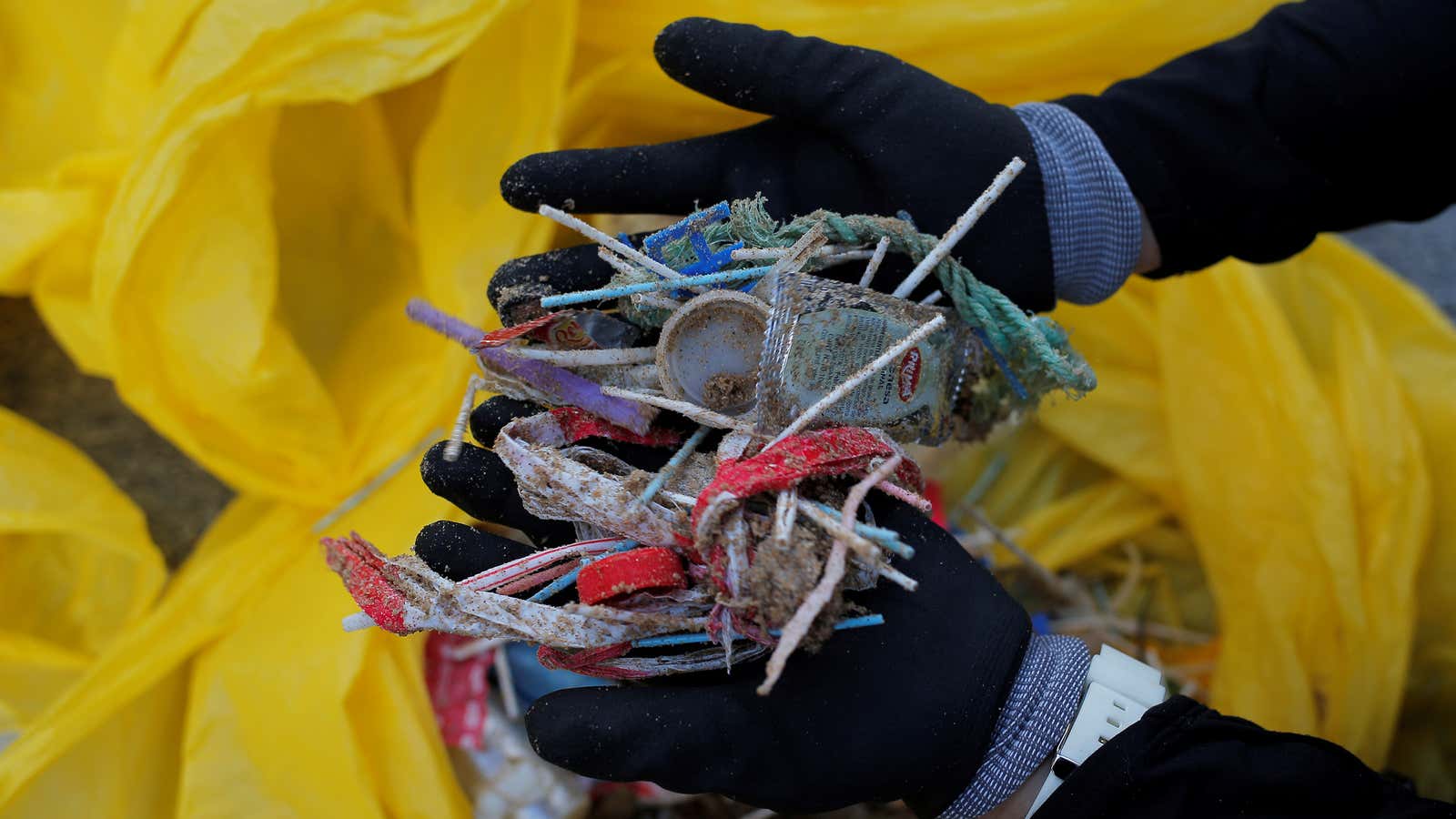More than 8 million metric tons of plastic enters the ocean each year, according to the most comprehensive estimate published in 2015. This weekend, Pope Francis added his voice to the growing outcry over our use of the sea as a dumping ground.
“We cannot allow our seas and oceans to be littered by endless fields of floating plastic,” Francis said on the fourth annual World Day of Prayer and the Care of Creation (Sep. 1). “We need to pray as if everything depended on God’s providence, and work as if everything depended on us.”
The pope had invited 100 business leaders to the Vatican on the occasion. “Each of us has to be responsible for others and for the future of our planet,” he told them.
Much of the blame for marine pollution can be put down to single-use plastics, such as grocery bags, cups, and straws, which can persist in the environment for millennia. Plastic’s negative impacts on the environment can be minimized through landfill burial, but many of the world’s most populous countries find it easier to flush their plastic waste through rivers into oceans.
Once in the ocean, sunlight breaks the plastic pieces into microparticles. These are then consumed by tiny and abundant phytoplankton that lie at the bottom of the food chain. As fish consume the phytoplankton and are then, in turn, eaten by bigger fish, the plastic accumulates in ever greater quantities, worsening the health of ocean life and ultimately human life as well, when that plastic ends up in our bellies.
In December last year, the United Nations adopted a resolution to completely stop plastic pollution of the ocean. The non-binding resolution has no set timeline for action.
